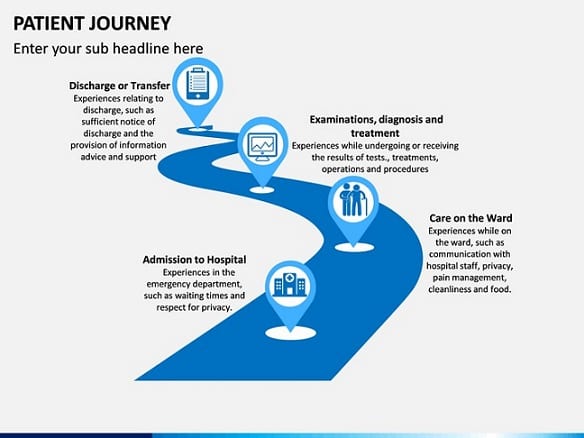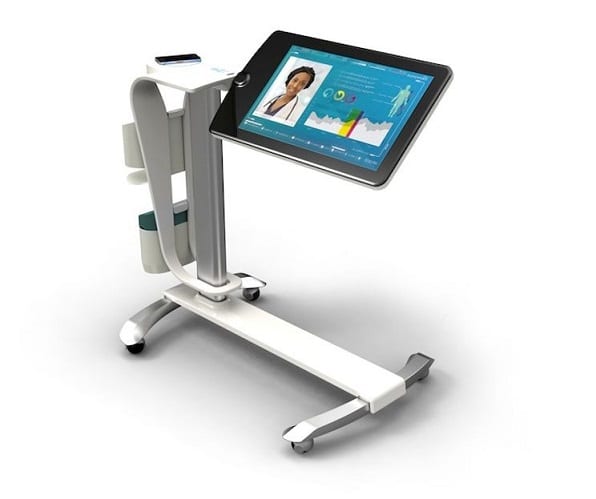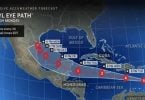Not easy peasy
Complexity is the hallmark of a hospital where challenges include the navigation of large multi-floored interconnected buildings combined with communication and logistics of managing staff, visitors, and equipment while meeting the goals and objectives of helping sick patients become healthy.
Hospitals hold a huge amount of high value inventory ranging from fixed and mobile equipment to medicines of every shape and color plus healthcare providers and support staff. The demand for the correct assets to be at the right place at the right time can be daunting.
Research suggests that there is a huge amount of time wasted by staff looking for equipment (from 10-30 percent of their work time). There is also time lost looking for patient supplies and medical equipment that is moved from patient-to-patient and building-to-building. In addition, healthcare personnel are overburdened with patient and family demands that could be addressed by other resources (i.e., technology, support personnel). All these “time wasters” add stress to doctors and supporting hospital staff who, in reality, have as their primary purpose – to look after patients and not infrastructure.
Patient journey

The first step toward improving the ER/hospital experience is to develop and analyze the critical path taken by the patient from the time he/she enters the facility to the time they search for the exit.
Hospitality focus
To determine the healthcare services in need of improvement the patient experience begins with a walk through the “customer” journey, looking at the points of interactions and series of exchanges across time-periods with service providers. The outcome of the interactions can be analyzed and used to design medicalized wellness and hospital service features desired by both out-patients seeking medical attention through Urgent Care and/or hospital ER rooms and/or patients requiring in-hospital attention.
The touch point steps can be improved and expedited to enhance and improve the ER/hospital experience through technology, and trained personnel, freeing up healthcare professionals and staff to focus on the patient and not on administrative details. In addition to the efficiency of technology and enhanced employee training, robots and multilingual/trained personnel can address patients in their preferred language or, for hearing or sight impaired individuals, communicate with them based on their personal needs and preferences while being culturally sensitive to patients regardless of age, ethnicity, financial status, etc.

Having recently spent too much time at ER departments and in-hospital beds, it is obvious (to me) that the touch points begin at check-in where robotics and trained personnel could efficiently query the patient as to name, age, residence, pain level, and quickly and efficiently obtain and/or retrieve from existing databases, other medically routine information. The one robot and skilled staffer could access the facilities database and validate and/or add information and print out an ID bracelet and present it to the patient, replacing at least three staff members. Currently, bureaucrat focused employees’ staff assigned to intake procedures, make some of these individuals more suitable for a prison hospital experience than a public/private hospital environment.
The next in-take step has a medical focus and this step can also be effectively administered by a robot. Some healthcare facilities have introduced RFID solutions (i.e., RFID tags, readers, software and networks) and there are opportunities to expand the use of this technology and range from passive, non-powered small sticker type labels attached to individuals’ items to active powered tags. RFID technology does not need a line of sight to record a code and automatically records movements of items and reports anomalies.
Not once but multiple times
Because of my post-Covid vaccine response, an overaggressive GI physician and the consumption of pre-MRE chemicals (that were not explained or described), I developed a cyclone IBS attack, lasting many months leading to serious damage to my health. The blow to my well-being was hindered (rather than helped) as a result of ill-informed, over-worked and under-staffed healthcare professionals and administrators at two of New York City’s major hospital complexes (namely Mount Sinai and NYU Langone).
Improvement cannot wait
If hospitals administrators are looking to build loyalty among patients along with recommendations from these “consumers,” it is in their best interest to consider a long list of improvements that will impact positively on people who, because of doctor referrals or the absence of other medial choices, end up at an ER complex – urgently in need of medical attention.
Loyalty is an important concept when considering availability of health services. Patient perception is frequently determined by the level of satisfaction experienced and is likely to determine continued selection of a particular provider. Loyal customers are important to health services as attracting new customers tends to be more expensive than keeping existing ones because of the marketing costs associated with doing business are reduced.
Why do eTurboNews journalists need your support?
Powerful corporations, organizations and governments control so much information that reaches the public- including in our travel and tourism industry.
eTurboNews is trying to avoid the trap that befalls much of the U.S. and international media. As a global news organization, we fight to keep our independence when reporting relevant news. Research and fairness in journalism also cost money!
YOU are our inspiration. You could help a little more to keep us going and click here: A free luxury cruise, a first-class airline ticket, or a stay in a 5-star resort could be YOUR reward.





















